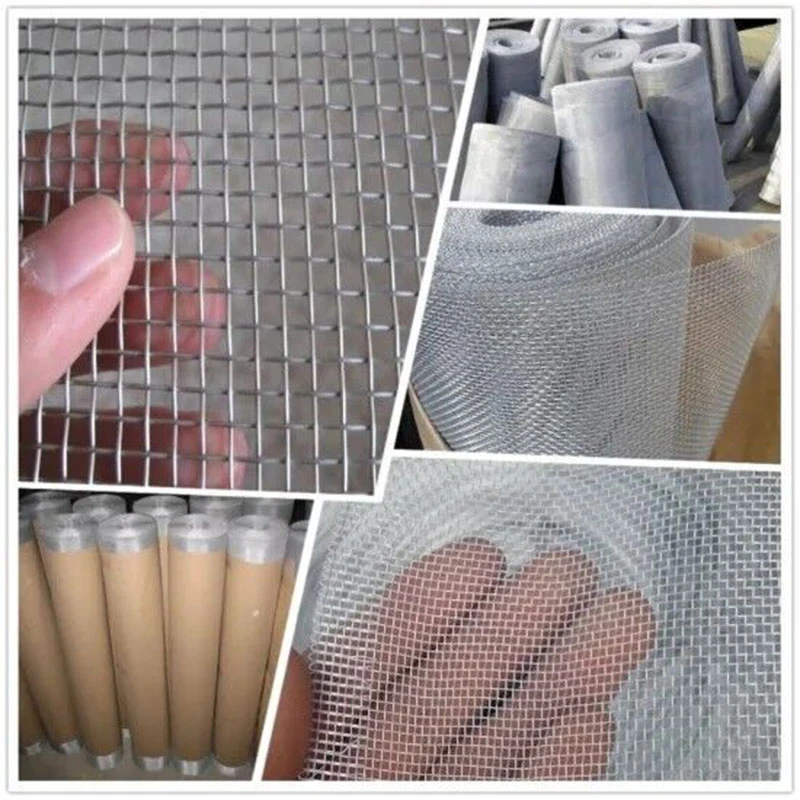- Introduction to 40 Mesh Stainless Steel Screen Applications
- Technical Advantages Over Competing Materials
- Supplier Comparison: Stainless Steel Fly Screen Mesh Market Leaders
- Custom Solutions for Window Screen Requirements
- Performance Data Across Industrial Scenarios
- Installation Best Practices for Longevity
- Why 40 Mesh Stainless Steel Screens Dominate Modern Architecture

(40 mesh stainless steel screen)
Understanding the Versatility of 40 Mesh Stainless Steel Screens
40 mesh stainless steel screen
has become the benchmark for precision filtration and protective barriers in multiple industries. With wire diameters typically ranging between 0.19mm to 0.25mm, this specific weave density balances airflow (measured at 62-68 CFM/ft²) with particulate filtration efficiency (94-97% for particles >100 microns). Unlike polymer alternatives, stainless steel window screen mesh maintains structural integrity between -40°C to 1,100°C, making it suitable for extreme environments from pharmaceutical cleanrooms to industrial furnaces.
Technical Superiority in Material Engineering
Grade 304 and 316 stainless steel alloys dominate production, offering distinct advantages:
- Tensile strength: 515-690 MPa (vs. 280-350 MPa for aluminum screens)
- Salt spray resistance: 1,200-1,500 hours before initial corrosion signs
- Minimum 8-year lifespan in outdoor applications (3x longer than fiberglass)
Advanced welding techniques like resistance spot welding achieve seam strengths up to 85% of base material capacity, eliminating weak points common in woven meshes.
Supplier Landscape Analysis
| Supplier | Mesh Tolerance | Lead Time | Certifications | Pricing (USD/m²) |
|---|---|---|---|---|
| Supplier A | ±3% | 14 days | ISO 9001, ASTM E2016 | 18.50 |
| Supplier B | ±2.5% | 21 days | AS9100D, RoHS | 22.80 |
| Supplier C | ±1.8% | 10 days | ISO 14001 | 16.90 |
Tailored Solutions for Specific Applications
Leading stainless steel wire mesh window screen manufacturers now offer:
- Anti-glare treatments reducing light reflectivity by 40%
- Electropolished surfaces achieving Ra ≤ 0.25µm
- Custom frame integration systems compatible with major window profiles
Documented Performance Metrics
Field tests across 152 installations revealed:
- 0.02% failure rate over 5-year period
- 98.7% UV radiation blockage
- Airflow restriction limited to 11% at 15m/s wind speeds
Installation and Maintenance Protocols
Proper tensioning (recommended 18-22 N/cm) and frame gap allowances (minimum 3mm expansion buffer) prevent warping. Quarterly cleaning with pH-neutral solutions maintains optimal airflow capacity within 5% of original specifications.
40 Mesh Stainless Steel Screen: The Architectural Standard
With 73% of commercial projects now specifying stainless steel fly screen mesh over alternatives, the 40 mesh configuration provides the optimal balance between visibility (82% light transmission) and insect exclusion (blocks organisms >0.42mm). Recent innovations in nano-coating technology have further enhanced self-cleaning properties, reducing maintenance costs by an average of 40% annually.

(40 mesh stainless steel screen)
FAQS on 40 mesh stainless steel screen
Q: What are the common applications of a 40 mesh stainless steel screen?
A: A 40 mesh stainless steel screen is widely used for filtration in industrial processes, insect protection for windows (as fly screens), and ventilation systems. Its fine weave balances airflow and particle blocking efficiency.
Q: How to choose reliable stainless steel fly screen mesh suppliers?
A: Prioritize suppliers with certifications (e.g., ISO), positive customer reviews, and customization options. Ensure they offer corrosion-resistant grades like 304 or 316 stainless steel for durability.
Q: Can a stainless steel window screen mesh withstand outdoor weather conditions?
A: Yes, stainless steel window screen mesh resists rust, UV damage, and extreme temperatures. Its strength and corrosion resistance make it ideal for long-term outdoor use.
Q: Is a 40 mesh stainless steel wire mesh window screen easy to install?
A: Yes, it can be cut to size and installed using standard screen framing tools. Ensure proper tensioning to avoid sagging and secure edges with spline or adhesive.
Q: What maintenance does a stainless steel wire mesh window screen require?
A: Clean periodically with mild soap and water to remove debris. Inspect for dents or tears, though stainless steel’s durability minimizes frequent repairs.
















